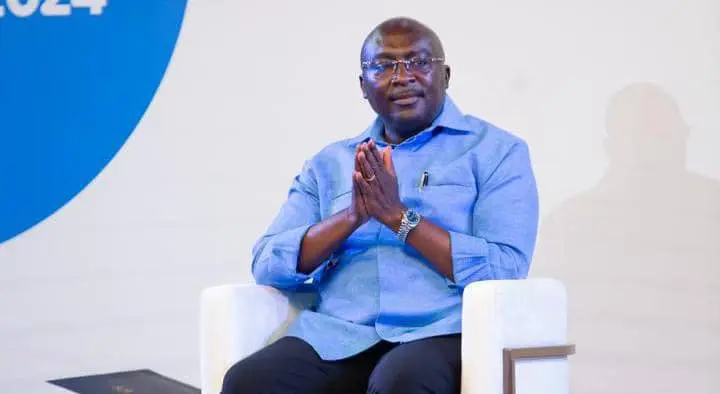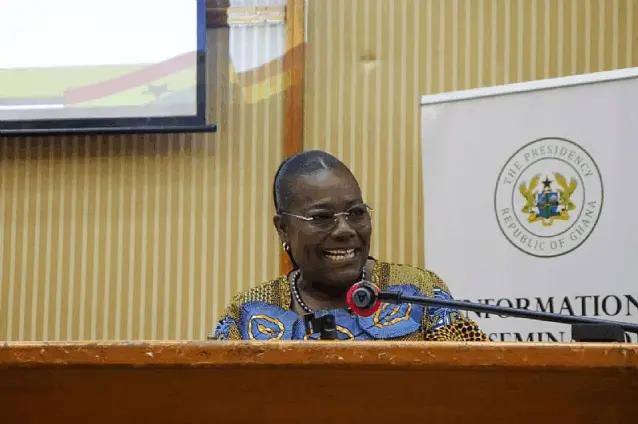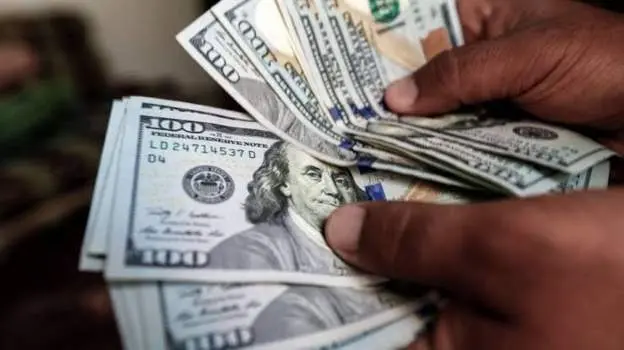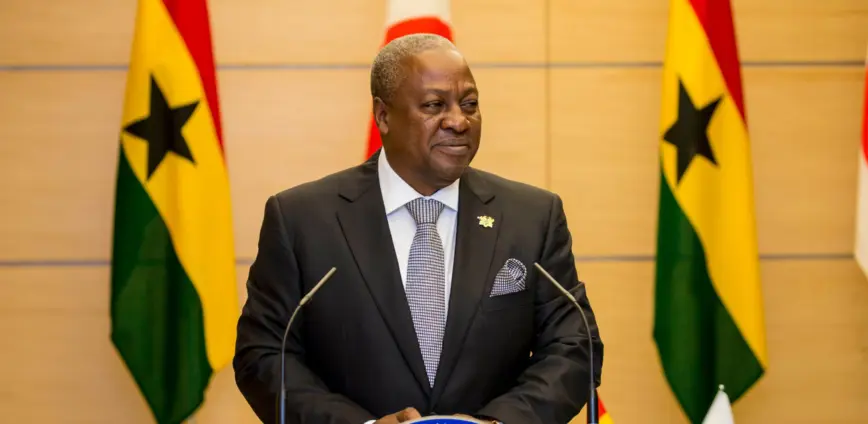During a recent address to the Young Executive Forum in the UK, Dr. Mahamudu Bawumia, former Vice President of Ghana, passionately defended his government’s controversial gold-for-loans strategy. As debates continue to swirl around Ghana’s economic policies, Bawumia presented the decision to prioritize purchasing gold over acquiring traditional loans as a pivotal step towards achieving true economic sovereignty. The core of his argument centers on the belief that controlling Ghana’s gold reserves, and backing the currency with gold, offers a path to greater stability and independence from international financial institutions. But was this gold strategy, particularly the policy of backing the Cedi with gold, truly a game-changer for Ghana’s economy, or are there yet-unseen complexities and challenges?
Bawumia framed the gold strategy as a fundamental choice: economic independence or continued reliance on foreign loans. “$5 billion in gold or $3 billion in loans – we chose sovereignty,” he declared, underscoring his belief that controlling Ghana’s resources is paramount. According to him, the Bank of Ghana’s gold purchase program played a crucial role in strengthening the cedi. Over two years, the Bank of Ghana is said to have purchased $5 billion worth of gold, a move Bawumia believes provided critical backing for the national currency.
One tangible outcome, Bawumia asserted, was a substantial increase in Ghana’s gold reserves. “We increased the gold reserves in Ghana from 8.7 tons to 30 tons. So, 65 years after independence, we only had 8.7 tons, but in just two years, we went to 30. That is a big backing for the currency,” he stated, emphasizing the speed and scale of the increase. This boost in reserves, he argued, provided a stronger foundation for the cedi and the overall economy.
Bawumia also highlighted the logistical advantages of acquiring gold domestically compared to relying on foreign exchange earned through exports. “Why I went for gold is that you don’t need to export to get gold… But as for gold, you just need to dig it or pay for it with cedis. So it was a much easier way to do it,” he explained. He contrasted this with the traditional reliance on exporting commodities like cocoa, timber, and oil to earn foreign exchange, a process often subject to global market volatility and external pressures.
Dismissing claims from the opposition NDC party about their role in the cedi’s recent appreciation, Bawumia challenged them to identify specific policies that contributed to the currency’s improved performance. “If you are to ask the NDC to point out exactly what policy they have implemented that has resulted in the appreciation of the cedi, they cannot tell you one,” he asserted, suggesting their claims were unfounded.
According to Bawumia, the cedi’s performance was driven by three key factors: Ghana’s gold-backed currency initiative, a general weakening of the US dollar on global markets, and the current government’s fiscal restraint. He noted that the US dollar’s global decline had a positive impact on the cedi’s relative strength. Moreover, he argued that reduced government spending also eased pressure on the currency. “The US dollar itself is on the decline globally…They are not spending…When you are not spending, there is less pressure on your currency,” Bawumia explained.
Looking ahead, Bawumia cautioned that the long-term sustainability of macro stability depends heavily on the new administration’s management of the economy. “I believe that it is clear that what we put in place – and I believe this is going to be there for a long time – should help us maintain stability in the currency. But we’ll see how they manage it going down the road,” he said, expressing both confidence in the foundation laid and concern about future policy decisions.
Dr. Bawumia’s passionate defense of the gold strategy underscores a bold attempt to steer Ghana’s economic course towards greater self-reliance. While he acknowledged the influence of external factors, he maintained that the gold-backed currency provided a crucial anchor for stability. The ultimate success of this gold strategy, and its ability to truly secure Ghana’s economic sovereignty, will depend on the current administration’s commitment to fiscal discipline and prudent economic management. Whether Ghana’s bet on gold pays off in the long run is a question that only time will answer.
Image Source: MYJOYONLINE























